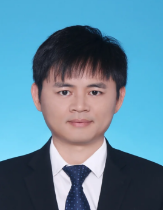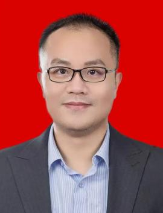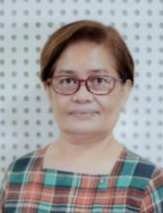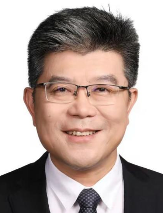| Yuming FangJiangxi University of Finance and Economics, China BIO: Fang Yuming, male, born in October 1984, holds a doctorate and is a secondary professor as well as a doctoral supervisor. Currently, he serves as a member of the Party Committee Standing Committee and Vice President of Jiangxi University of Finance and Economics. He is a recipient of the Excellent Young Fund Project of the National Science Foundation of China. He has held positions such as Deputy Director of the Research Office and Dean of the Teaching College. He serves as a member of the editorial boards of several domestic and international academic journals and is a director of the Chinese Computer Society and the Chinese Society for Image and Graphics. His research focuses on artificial intelligence, intelligent processing of visual big data, and virtual reality technology. He has led several projects/subjects funded by the National Science Foundation of China and the Ministry of Science and Technology, including key projects and special research plans. He has published over 100 academic papers in well-known domestic and international journals/conferences, and his research achievements have won the First Prize of the Jiangxi Province Natural Science Award. He has been selected for the Elsevier China Highly Cited Researchers List for consecutive years. Professor Fang Yuming has been engaged in research on artificial intelligence, visual big data intelligent processing, and virtual reality technology for a long time. He has published over 50 academic papers in international journals (SCI-indexed) and conferences (EI-indexed), including nearly 20 papers in top journals such as IEEE Trans. on Image Processing, IEEE Trans. on Multimedia, and IEEE Trans. Circuits and Systems for Video Technology. His papers have been cited more than 200 times. He has served as the secretary-general of the HHME 2013 academic conference, the special topic chair of the IEEE VCIP 2013 international conference 'Perception-driven image and video processing for visual communication systems', the special topic chair of the QoMEX 2014 international conference 'Perceptual Graphics, Rendering and High-dynamic Range Imaging', and the chair of the IEEE ICME 2014 international conference 'The Third International Workshop on Emerging Multimedia Systems and Applications'. He serves as a review expert for renowned international academic journals such as IEEE T-IP, T-CSVT, T-MM, T-B, T-SMC, and JSTSP. He is also a committee member or review expert of renowned international academic conferences such as IEEE ICME, IEEE ICIP, IEEE ISCAS, IEEE ICASSP, IEEE VCIP, QOMEX, ACM MM, etc. He is a member of the Multimedia Professional Committee of the Chinese Computer Society and a core member of the International Multimedia Communication Quality Experience Group. Title: Key technologies for multimedia quality evaluation towards realistic distortion Abstract: The report will mainly focus on the research achievements in the key technologies for multimedia quality evaluation with real-to-false distortion. It will provide a detailed account of the research results of the research group in recent years, including the construction of subjective quality benchmark datasets for multimedia such as dynamic scene multi-exposure fused images, screen content images, and panoramic videos, as well as the design of objective evaluation models. In addition, it will elaborate on the application of related objective quality evaluation models in parameter automatic adjustment and system optimization, and will also outline the future research directions and development trends in the field of visual quality evaluation. |
| Wei HuangYichun University, China BIO: Huang Wei, male, born in 1983, is from Nanchang, Jiangxi Province. He is a member of the Jiusan Society. He holds the title of professor and is a doctoral supervisor. He is a member of the Jiangxi Provincial Committee of the Chinese People's Political Consultative Conference, a member of the Science and Technology Committee of the Central Committee of the Jiusan Society, the director of the Science and Technology Committee of the Jiangxi Provincial Committee of the Jiusan Society, and a standing committee member of the Jiangxi Provincial Committee of the Overseas Chinese Association. He received his bachelor's and master's degrees from Harbin Institute of Technology and his doctorate from Nanyang Technological University in Singapore. He has also served as a postdoctoral fellow at the University of California, San Diego and the Agency for Science, Technology and Research in Singapore. He previously worked at Nanchang University, where he held positions as the vice dean of the School of Information Engineering, the director of the Information Office (co-located with the Network Center), the dean of the School of Mathematics and Computer Science, and the executive vice dean of the Graduate School. Currently, he serves as the vice president of Yichun University. As the first or corresponding author, I have published over a hundred papers in high-level academic journals and conferences in the field of computer science, including TMI, TMM, JBHI, TNNLS, CVPR, MICCAI, ACM-MM, KDD, AAAI, etc. I have undertaken more than twenty national, provincial and ministerial, and central enterprise-commissioned projects. I have been awarded as an advanced individual among overseas Chinese and their relatives, a high-end talent in scientific and technological innovation under the "Thousand Talents Plan" of the Provincial Talent Work Leading Group, a leading talent in the Provincial Key Discipline Academic and Technical Leading Talent Program, a provincial outstanding young scientist, and a provincial outstanding young researcher, etc. I have won over thirty domestic and international awards, including the second prize of the Jiangxi Provincial Natural Science Award (first author), the Best Paper Award of the first Machine Learning in Medical Imaging at the flagship conference MICCAI in the field of medical imaging (first author), and guiding postgraduate students to win the second place in the World Computer Olympiad and a series of Best Paper Awards at international academic conferences. I have been granted over ten national invention patents. I have participated in the writing and promulgation of over ten national and provincial and ministerial industry and group standards. Currently, I concurrently hold positions such as the chairman of the Jiangxi Computer User Association and a member of the Jiangxi Provincial Digital Government Construction Expert Consultative Committee, undertaking a series of social service and government think tank responsibilities. Title: A series of studies on in-body and ex-body intelligent auxiliary diagnosis of dementia Abstract: In recent years, through the research on key technologies for disease-assisted diagnosis, objective and quantitative beneficial supplements have been provided for the existing diagnosis methods based on clinical experience and subjective judgment. However, most medical imaging databases currently have a capacity that is less than that of general image databases, and the acquisition of medical images and the establishment of medical imaging databases differ from those of general images. There are problems such as high acquisition difficulty, high equipment requirements, high time costs, and a stronger economic demand. To achieve outstanding generalization performance of large-capacity deep learning models, the speaker focused on in-depth discussions on the key technologies for diagnosing neurodegenerative diseases in both in vivo and in vitro settings, including the generation of medical image data, based on the ideas of deep discriminative learning and generative adversarial learning. |
| Mary O’ PenetranteCentral Philippine University, Philippine BIO: Project Manager, Project AGUBAY, funded by Coca Cola Foundation Philippines (2024-present), ranked 46, ESG Trends, 2025 World University Ranking for Innovation Consultant, Panay River Basin Integrated Development Project, National Irrigation Administration, Region 6, Philippine, 2024-present Consultant, Mainstreaming Clean Cities, Blue Ocean Program in Iloilo City, funded by USAID, 2021-2023 Consultant, Rethinking Plastics Program funded by German International Cooperation, European Union, 2019-2021 Consultant, Priority Industry Clusters Development, Department of Trade and Industry, Philippines, 2017-present Director, University Research Center, Central Philippine University, 2017-2021 Publications in various journals Intellectual Property Licenses on various research works Chair, Panel of Evaluators, Research and Development Projects, Region 6 Chair, Panel of Evaluators, College of Computer Studies Capstone and Thesis Projects Member, Think Tank Committee of China-Philippines Economic Innovation and Development Research Institute of Minnan Normal University, Sept. 2024-2028. Title: Translating AI Research into Action: Building Scalable Solutions for Industry Abstract: This keynote highlights the crucial role of the academe, in partnership with both the public and private sectors, in translating artificial intelligence research into practical impact. Universities serve as knowledge hubs and incubators of innovation, while industries and governments provide the platforms and resources to scale these breakthroughs. By fostering collaboration across these sectors, AI research can be transformed into scalable solutions that address industry needs, strengthen public services, and drive sustainable development. The talk underscores how academe–public–private partnerships can ensure ethical deployment, build future-ready talent, and maximize AI’s benefits for both economy and society. |
| Hongcai ShangBeijing University of Chinese Medicine, China BIO: President, Dongfang Hospital, Beijing University of Chinese Medicine Director, Key Laboratory of Internal Medicine in Traditional Chinese Medicine (Beijing University of Chinese Medicine), Ministry of Education Recipient of the National Science Fund for Distinguished Young Scholars, QiHuang Scholar, Beijing Scholor, National Leading Talent in Science and Technology Innovation Executive Director, Beijing Key Laboratory of Smart Traditional Chinese Medicine for Chronic Disease Prevention and Treatment Academic Leader, TCM Informatics, high-level Chinese Medicine Key Discipline Project, State Administration of Traditional Chinese Medicine First Accomplisher, Second Prize of the National Science and Technology Progress Award National Innovation and Excellence Award Winner Principal Investigator, National Key R&D Programs of the "13th Five-Year Plan" and "14th Five-Year Plan", National Science and Technology Innovation 2030 Major Projects, National Natural Science Foundation of China (NSFC) Key Projects Chairman, Clinical Research Information Association, China Information Association for Traditional Chinese Medicine and Pharmacy Chairman, Fundamental Research Platform for Major Disease Prevention and Treatment of Traditional Chinese Medicine, China Association of Traditional Chinese Medicine Group Leader, Smart Traditional Chinese Medicine, Medical Artificial Intelligence Association, Chinese Society of Biomedical Engineering Title: Research on Smart Traditional Chinese Medicine Diagnosis and Treatment Based on Multidimensional Information Acquisition and Intelligent Processing of Generalized Visual Inspection Abstract: Traditional Chinese Medicine (TCM) visual inspection, grounded in a holistic and systemic paradigm, endeavors to grasp the internal essence of the body and predict functional status and disease prognosis by integrating and cross-validating multidimensional external information pertaining to "Shen" (spirit), "Se" (complexion), "Xing" (physique), and "Tai" (demeanor). To this end, we have investigated multimodal information acquisition and intelligent processing technologies. This research expands the scope of "generalized visual inspection" to encompass diverse modalities, including tongue, facial, ocular, manual, bodily, and olfactory biomedical information, thereby enabling objective, comprehensive, and quantitative data collection. Concurrently, we have developed intelligent processing algorithms for feature extraction, pattern recognition, and correlation analysis, aiming to uncover profound patterns linking diagnostic observation data with disease states. Building upon this foundation, we have created a suite of equipment and a decision-support platform designed to serve primary healthcare for major chronic diseases and health monitoring. This initiative aims to propel TCM diagnosis and treatment towards modernization and intelligence. |




